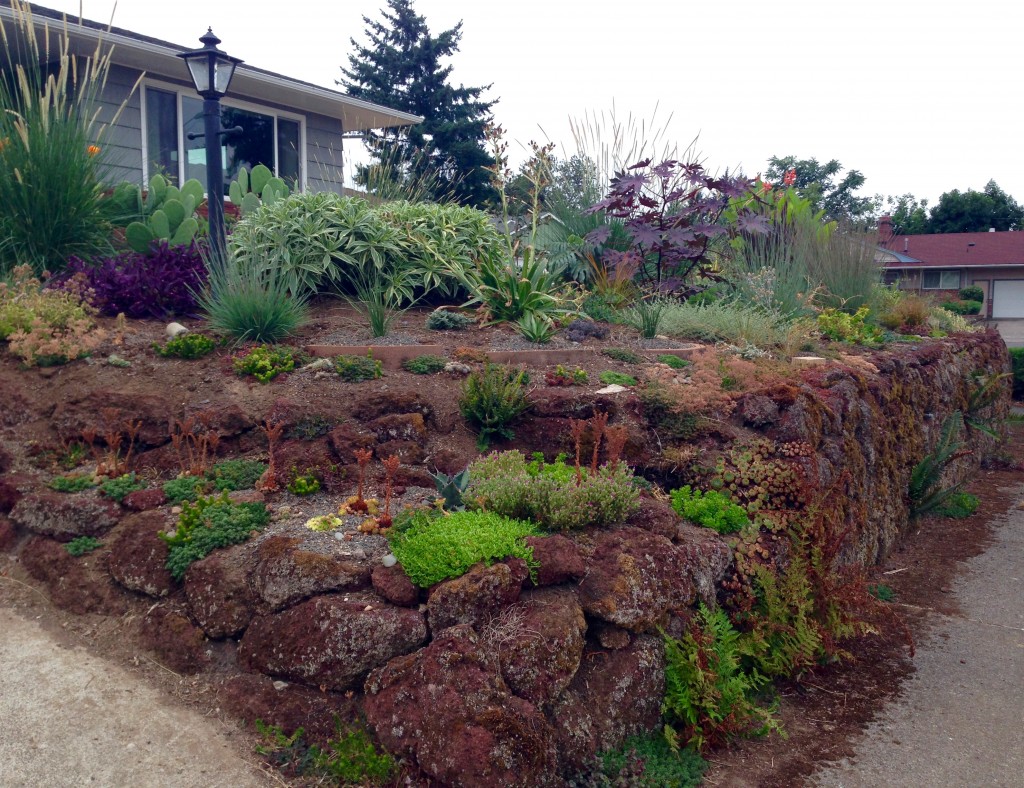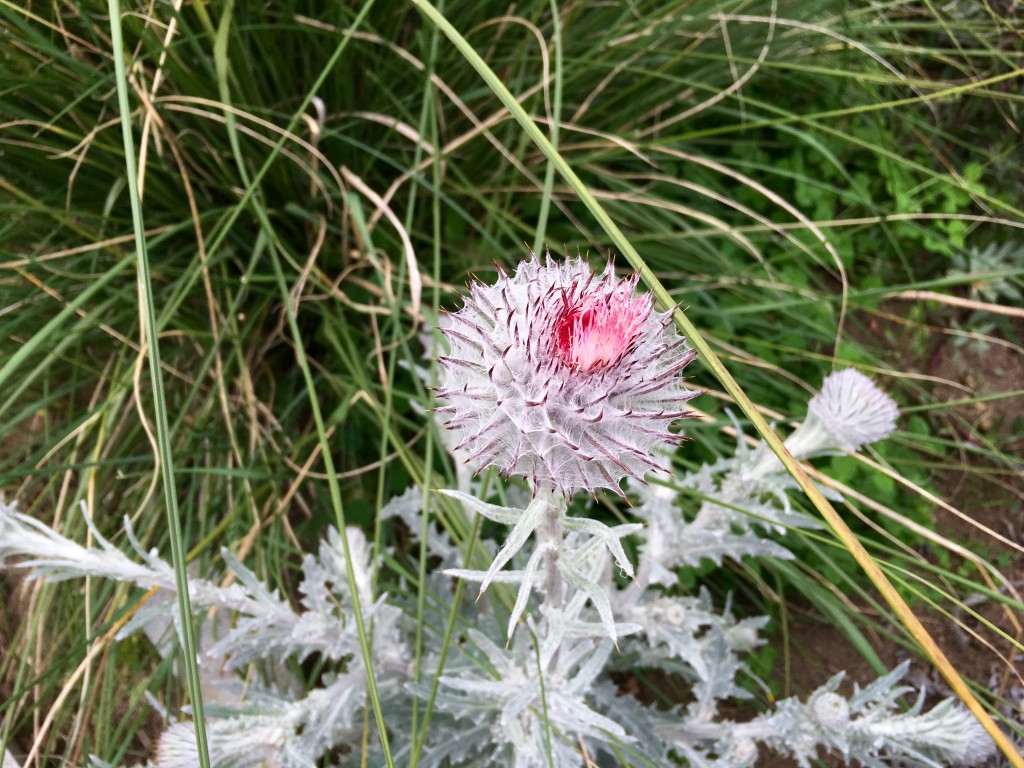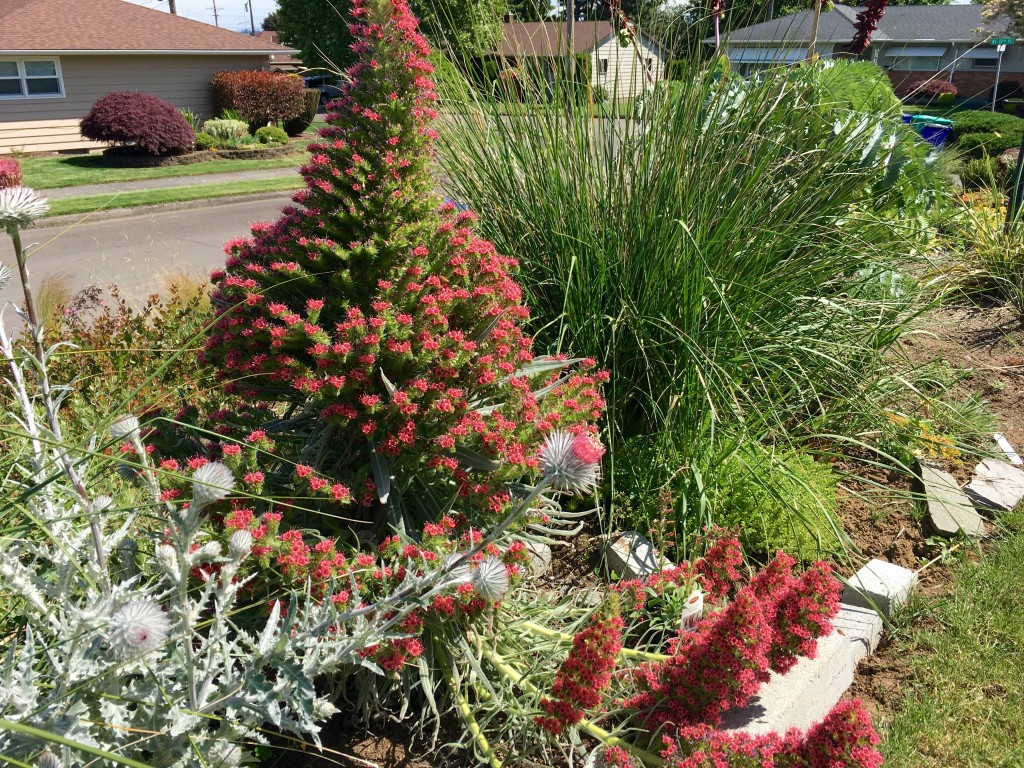Flower or seed head: debating which I like more. As you can see, it’s a tough choice. Right now I’ve got Cirsium occidentale planted next to Echium wildpretii, a happy accident, aka a place where I could still see dirt.
I’ve got a feeling both plants will have seeded to their hearts’ content, so come next year, look out. It’s amazing how jam-packed the Sea of Juniper has gotten already. It seemed so well behaved when I started.

In fact, all the beds seemed that way, in the beginning. More on that another day. (Hah, can you believe it. I’m hereby curbing a tangential aside.)

I hadn’t seen in bloom before, so wasn’t sure what to expect. If it’d stopped here, I’d have thought it was terrific. But, of course, it still had more to show.

They filled in. (The bricks are lying around–in various shapes and sizes–thinking about where they want to live.)

So much for my claim things only get too big and wild if you’re lucky. Ai yi yi. The glorious grass on the left is Pennisetum macrourum aka African Feather Grass, a gift from Scott Weber of Rhone Street Gardens. They got huge after just one season.

Here’s a wide shot from the front of the bed with African Feather Grass in Bloom. It didn’t completely die back this past winter, and now they’re super fellas. I love it when they wave their blooms about freely.

These textures play well together. Ricinus ‘New Zealand Purple‘ aka Castor Beans (DO NOT EAT) seeded around from last year’s plant, a gift from Loree at Danger Garden, so big ruby leaves will be joining the scene soon.

Another angle. That African Feather Grass gets along well with other plants–until it swallows them up.

What are your strategies for managing abundance? I’d sure love to pack some additional strategy alongside my enthusiasm.
Cheers
